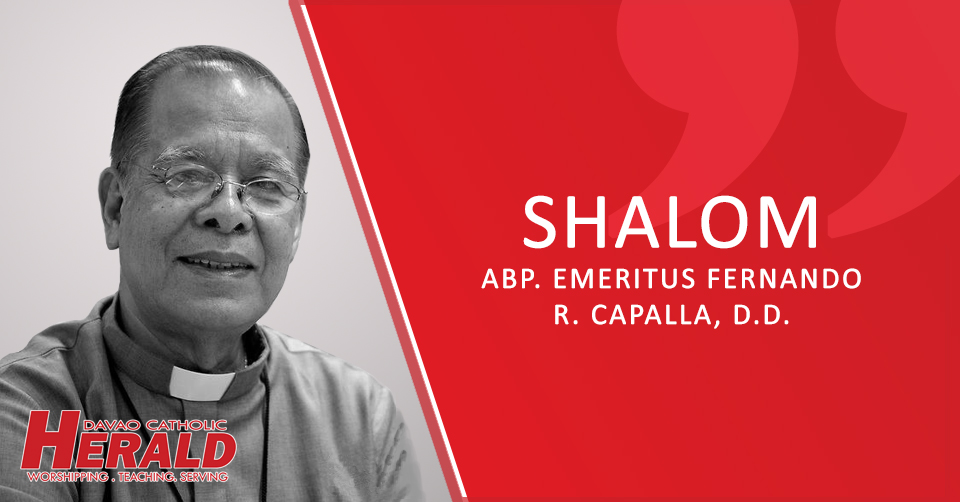
Faith-sharing, another mode of dialogue possible in Fratelli Tutti
In Chapter Six of Fratelli Tutti (n. 198), Pope Francis lists the following as his “list” of human encounter: “approaching, speaking, listening, looking at, coming to know and understand one another, and to find common ground: all these things are summed up in the one word “dialogue”…
“If we want to encounter and help one another, we have to dialogue.”
With these words, it seems to the Pope that human encounter, the underlying basis of dialogue, is the only way to find common ground in order to enable one to dialogue and to help.
Does finding a common ground have its limit only in human encounter? It appears so, and there seems to be no other way. Why? The reason is because humans are basically social beings, or as an English poet would say, “no man is an is land (John Donne) …” Or as Francis himself says, “no one can face life in isolation” (n.8).
But there is another common ground, not in the Pope’s list above, where human beings can encounter each other. There really is. It can happen when believers, Christians and Muslims, Hindus and Buddhists, Sheiks and Zoroastrians, and Indigenous Natives, etc. come together to share their beliefs, to exchange their personal relationships with God, their moral systems and forms of worship. This is what I call faith-sharing. Can this be included as one common ground in Fratelli Tutti?
I am not sure. Definitely not in Chapters Six. But in Chapter Eight, n. 286. Here we can easily presume. This is the last chapter, n. 286. And here Pope Francis reveals his favorite model of a Universal Brother.
“In these pages of reflection on universal fraternity, I felt inspired by Saint Francis of Assisi, but also by our brothers and sisters who are not Catholics: Martin Luther King, Desmond Tutu, Mahatma Gandhi and many more. Yet I would like to conclude by mentioning another person of deep faith, who drawing upon his intense experience of God, made a journey of transformation towards feeling a brother to all. I am speaking of Blessed Charles de Foucauld. (n. 287).
It has been mentioned in his life of dialogue with the Tuareg Muslims of the Sahara Desert that he often talked with them about faith in God/Allah. The Muslims must have known his famous Prayer of Abandonment which we reprint here.
* * * * * *
“Father, I abandon myself into your hands; do with me what you will. Whatever you may do, I thank you ; I am ready for all, I accept all. Let only Your Will be done in me, and all your creatures.
I wish no more than this, O Lord. Into your hands I commend my soul: I offer it to you with all the love of my heart, for I love you, Lord, and so need to give myself, to surrender myself into your hands without reserve, and with boundless confidence, for you are my Father.”
* * * * * *
By the way I say this prayer every day, ( I used to say it with the late Bishop Prelate of Marawi, Bishop Bienvenido S. Tutud, (whom I succeeded), Fr. Michel de Gigord, m.e.p., and others. This was the early 1980s. We were members of Jesus Caritas, an international association of priests, following the spirituality of Blessed Charles. Here in the Philippines, Cardinal Gaudencio Rosales and Bishop Antonio Tobias and myself are probably the only members among the bishops.


No Comments